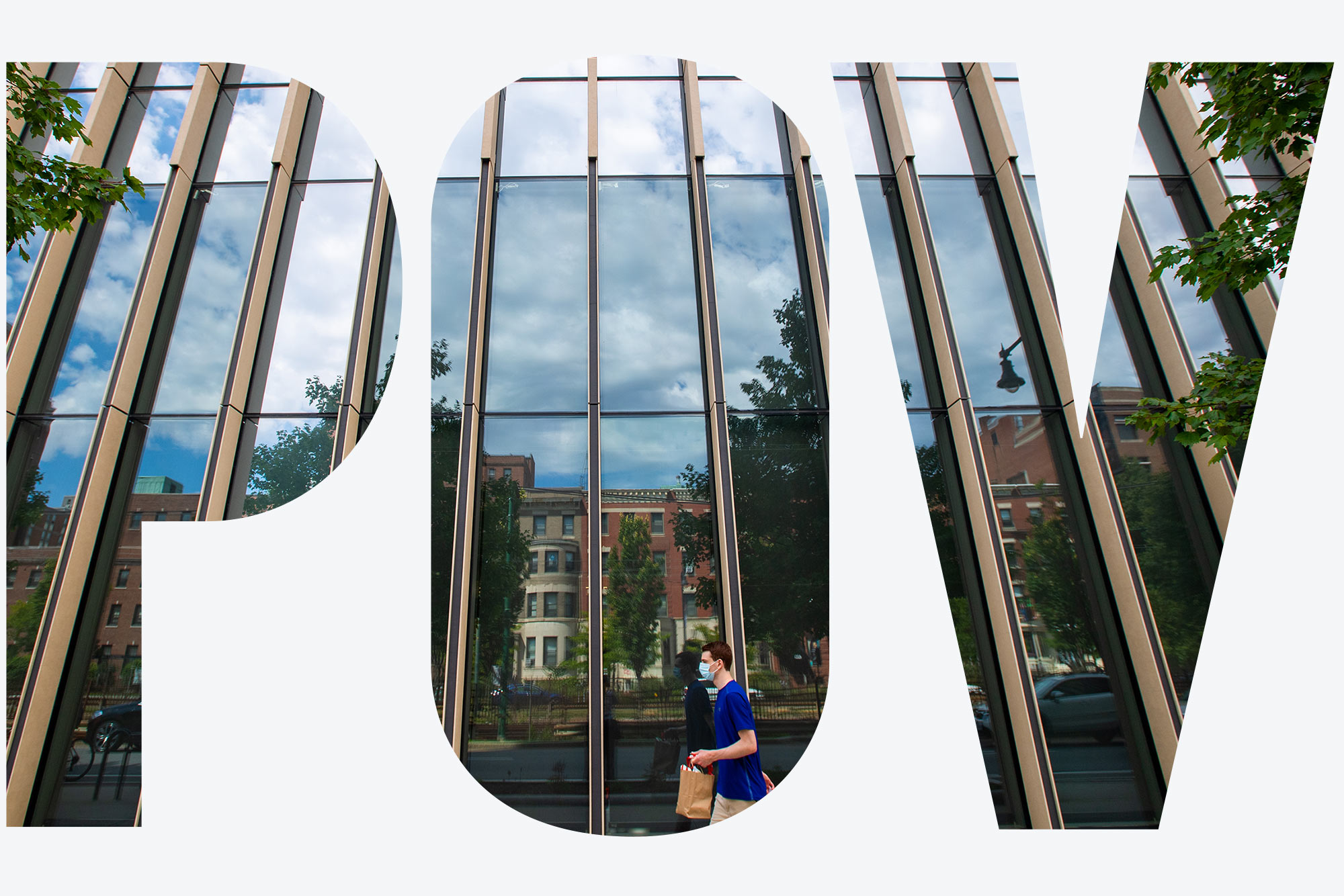POV: I Got COVID-19. Here’s What You Need to Know

Photo by Cydney Scott
POV: I Got COVID-19. Here’s What You Need to Know
BU student’s message to fellow Terriers
On July 12, I woke up feeling very dizzy and groggy, and developed a fever later in the afternoon. The following day, I was tested for COVID-19, and the results came back positive.
My experience with COVID-19 was unlike everything that I had been told it would be like. Before I became sick, I had countless conversations with people where I was always told things like, “Well, at least you’re young, you don’t need to worry!” or “It’ll be fine if you get it, it’s just like a mild cold or flu.” I’m here to tell you, firsthand, that sort of thought process is ignorant and misinformed.
Even as a healthy 19-year-old woman, COVID-19 took a lot out of me. I laid in bed for days, unable to do much more than sit up to drink water; during the night, I tossed and turned with horrible fever dreams, waking up hourly shaking with chills or burning hot with a fever that reached as high as 103 degrees. For weeks, I struggled with painful headaches, a lack of taste and smell, fatigue, and a debilitating cough. Not to mention the fact that I had to stay locked in my room, alone, unable to see my family or friends for fear of getting them sick.
What you don’t hear a lot about is the extensive recovery process for COVID-19. I don’t smoke, I don’t have any underlying health conditions, and I’m young. However, more than a month after becoming sick and no longer being contagious, I’m still dealing with the effects. I’ve had numerous trips to the doctor, chest X-rays, and even a visit with a pulmonologist to examine the internal inflammation in my lungs that resulted from the virus. Even now, I still get chest tightness and feel light-headed doing tasks that I would have been able to do with ease just two months ago.
The point is, this virus affects everyone differently. I know people who have suffered only minor symptoms, and have been just fine after a few days. But even if you’re healthy and/or young, like me, and confident that you can “handle” COVID-19, you are still not immune to the painful and lingering physical effects that may come with this virus. No matter how able-bodied you think you are, this virus can still make you and those around you really, really sick. It’s not something that you want to take chances with, and it is not something to be taken lightly.
Boston University has given its students a chance to return to campus this fall. As a transfer student from California, this will be my first year living on campus and I certainly do not want to be sent back home for another five (or more) months; rest assured, neither do the rest of our student body. I cannot emphasize enough the extent to which the BU community bears a responsibility in keeping not only those on campus safe, but also those who live in the surrounding neighborhoods. As students, in order to earn what we want and stay on campus, we have to act accordingly. So, for the benefit of yourself, your professors, friends, classmates, and the strangers around you, as well as to honor the 800,000-plus people around the world who have lost their lives to this pandemic, don’t be selfish. Avoid big parties. Take the necessary safety precautions and wear a mask. Now more than ever is the time for us to look after each other and be good people. The rest can wait, I promise you.
Gemma Willetts (COM’23) recently transferred to BU from Palomar College, she can be reached at gemmaw@bu.edu.
Comments & Discussion
Boston University moderates comments to facilitate an informed, substantive, civil conversation. Abusive, profane, self-promotional, misleading, incoherent or off-topic comments will be rejected. Moderators are staffed during regular business hours (EST) and can only accept comments written in English. Statistics or facts must include a citation or a link to the citation.